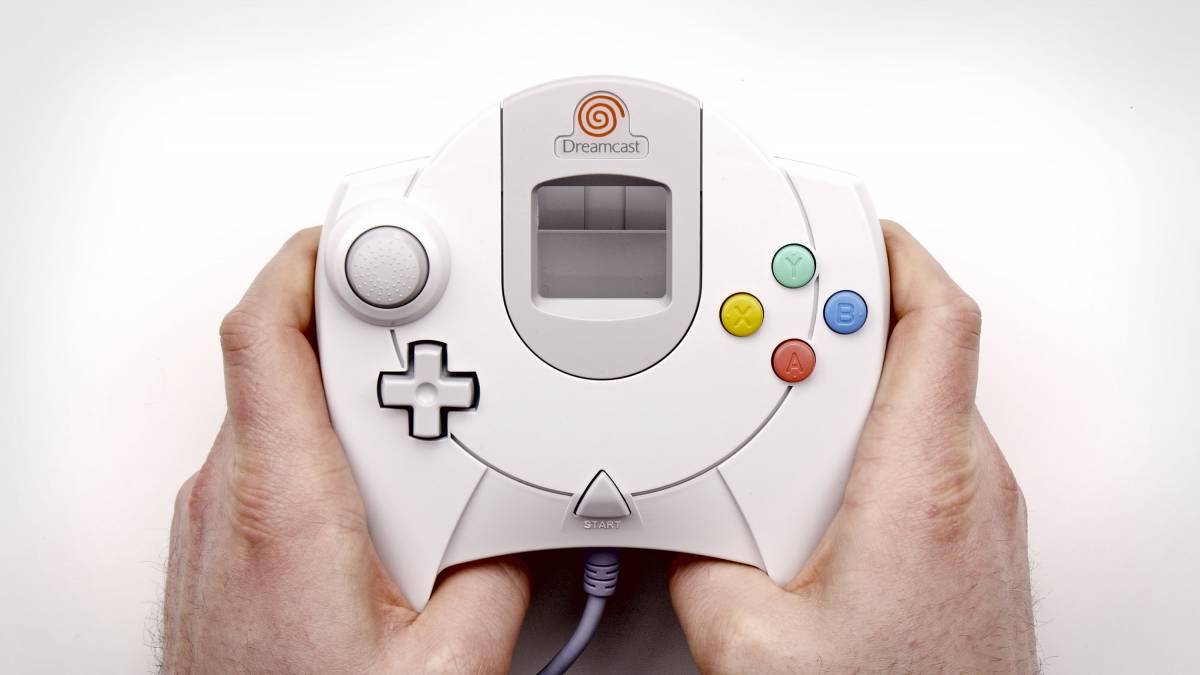The sixth generation of games consoles was an interesting one – a passing of the torch in many ways.
Sony and Microsoft were establishing themselves as the behemoths, whereas the old guard – namely Nintendo and Sega – began to see their market share fade. Nintendo kept going and to this day are still bringing out new consoles, but for Sega, this was the final nail in their console-making coffin.
Released in the fall of 1999 as the heir to the Sega Saturn, Sega had high hopes for the Dreamcast. They had learned lessons from the failure of the Saturn. They opted to try and avoid the complex processors that made the Saturn a nightmare to develop for, and used off-the-shelf components in an effort to keep the price down.
On top of this, they added some very interesting features. For a start, it was the first console to include a built in modem, and also came with a VMU (Visual Memory Unit) which acted as a memory card, file manager and a console – albeit, a very small, basic one – in its own right.
The price was good and so was the hardware, but what about the most important part – the games? Well, the games were excellent. Mortal Kombat, House of the Dead 2 and Sonic Adventure were all launch titles with the US version of the console, and it also had Crazy Taxi and Shenmue to come during its lifespan, which was a mere two years.
Sega did almost everything right, but much in the same way that many serial killers are caught after being pulled over for a broken taillight, Sega made a few small errors that ended up making the console a flop, posting massive losses and having to lay off a third of their workforce.
For a start, they had fumbled big time with the Saturn and it left consumers with a bad taste in their mouths as many had lost confidence in the company. Secondly, they decided to try and capture the Christmas market and launched significantly earlier than the competition. Many users opted to wait for the PlayStation 2 to be released, and as a stop-gap, the PlayStation 1 and Nintendo 64 were being sold at rock bottom prices, giving consumers the option of systems with a proven track record of quality games.
These low sales had a knock on effect. Sega had enlisted lots of third party support for the Dreamcast, but the low sales of the unit meant that developers simply shunned the console, whilst Sega themselves backed out of a deal with EA after an argument about exclusivity rights to their sports titles, which meant the Dreamcast would see no FIFA, Madden or NBA, severely limiting the number of A-list titles on the console.
Even a price reduction to $99 couldn’t get the console off the shelves and the machine was discontinued in March 2001 – only 18 months after launch and prompting Sega to go down the software-only route.
It was an unfortunate turn of events. Games like Shenmue, Crazy Taxi and Jet Set Radio were great, though they weren’t quite the killer apps that would see Dreamcasts flying off the shelf. Combine that with a lack of DVD capabilities and the Dreamcast was quickly dispatched by the more highly regarded PlayStation 2 and Xbox.
And the big one: the Dreamcast had no security, meaning that it would play CD-R’s with no need to have the console chipped or modified in any way.
Sixteen years on from Sega’s last throw of the dice, the Dreamcast is still well sought after on eBay. You really need to wonder if a few small changes would have seen Sega still in the console market today. Perhaps if they had stuck around and had a port of GTA III on the Dreamcast, things would have turned out very differently for them.
In hindsight, it’s hard not to feel a little sorry for Sega, once a giant of the industry. You knew they had officially lost the console wars when you started to see Sonic titles appear on Nintendo systems, something that in the mid 90’s would have been unthinkable.
Some of the coverage you find on Cultured Vultures contains affiliate links, which provide us with small commissions based on purchases made from visiting our site. We cover gaming news, movie reviews, wrestling and much more.



